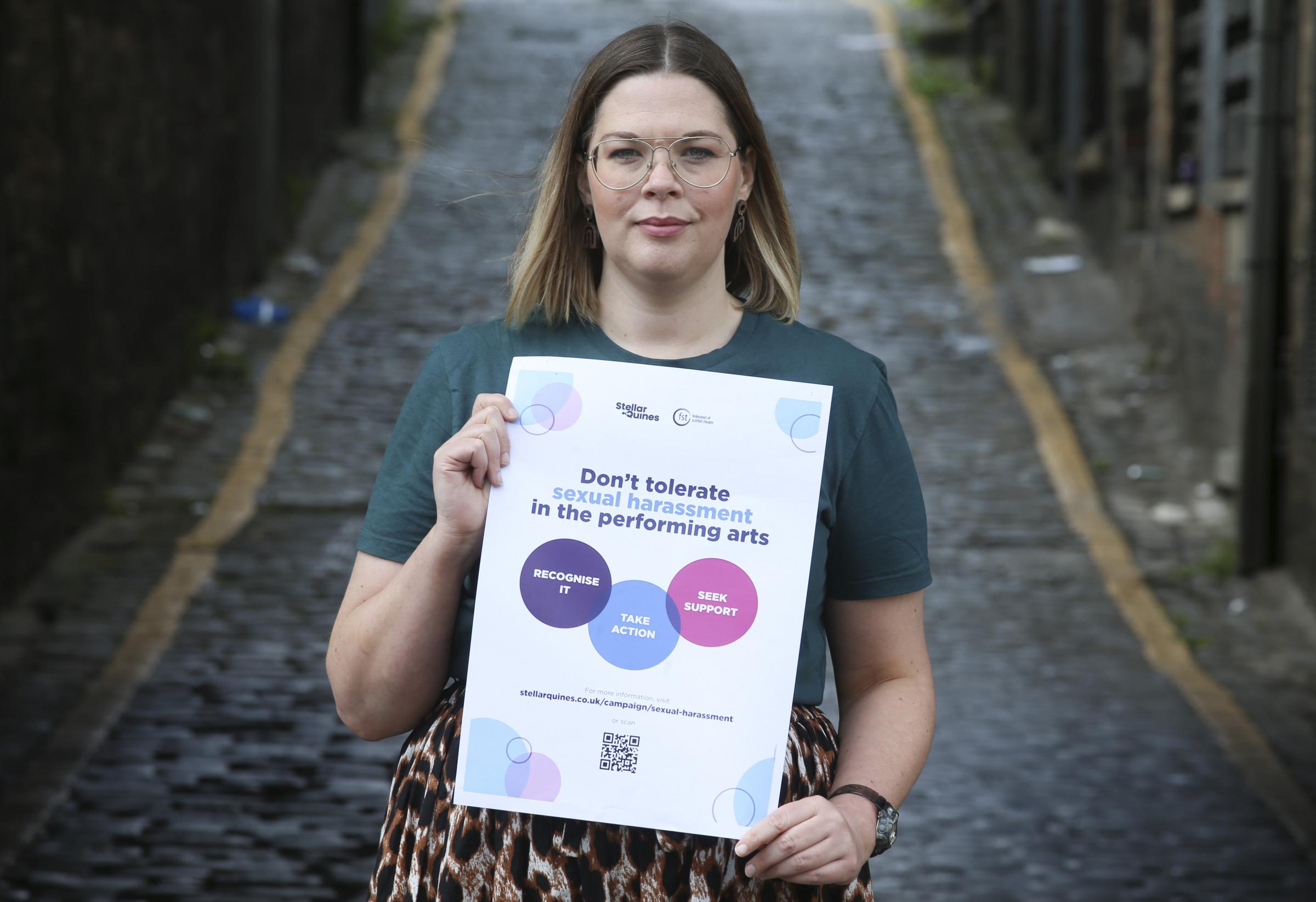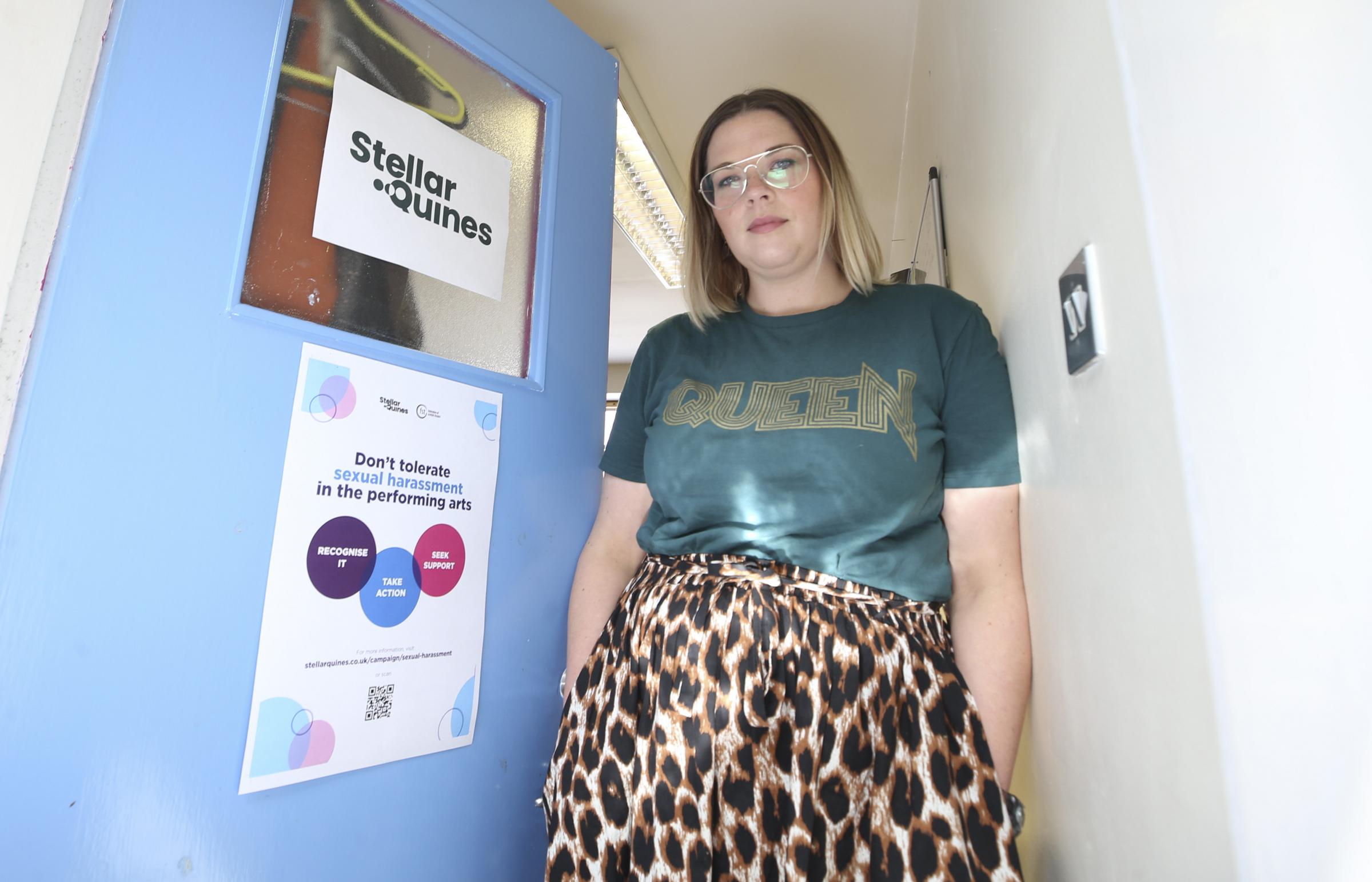
THE boss of a Scottish feminist theatre company is hoping a new sexual harassment awareness campaign will give victims the confidence to speak out and seek support as conversations around abuse in performing arts intensify.
Edinburgh-based Stellar Quines will be running a series of videos on social media over the next few months focusing on how to recognise abuse, what to do if it happens, and where to go if you need help.
Alongside this, several campaign materials covering these topics will be available on the company’s website.
And a downloadable poster urging zero tolerance of harassment in the sector can be used by theatre groups in their venues and rehearsals rooms. This will include a QR code directing people to the Stellar Quines website where they can find more information if they need support.
Stellar Quines – which will celebrate its 40th birthday next year – was started up by a group of women artists who were keen to see more of their work on stage and better gender balance across the sector.
Since 2019, the company has been involved in a series of open space events called Hack the Patriarchy, which focused on creating meaningful conversations about gender inequality across performing arts.
Caitlin Skinner, CEO and artistic director at Stellar Quines, said the idea for a campaign came from the first event when sexual violence support worker Lisa Sangster – who helped to create some of the campaign materials – asked if Scottish theatre was happy with its response to the MeToo campaign.

“I suppose the answer to that was no,” she said.
“People really felt Scottish theatre hadn’t had its Me Too moment, that there hadn’t been anything there in terms of an acknowledgement and an acceptance that sexual harassment exists within the industry.
“So that prompted the idea to work on an awareness raising campaign and we’ve been working on that for a number of years with focus groups, so we’ve been getting feedback from other people in the industry about what they think of the materials.”
The theatre world was alerted in a huge way to the presence of sexual abuse within the industry last year when Scots actor Kevin Guthrie was jailed for assaulting a woman at a flat belonging to fellow actor Scott Reid in Glasgow’s west end.
The Sunshine on Leith and Fantastic Beasts star was sentenced to three years behind bars and placed on the sex offenders register following the 2017 attack.
But the 34-year-old was freed last month after he won an appeal to cut his sentence.
During the trial, the 29-year-old victim told how she was groped by Guthrie before he performed a sex act on her. He then carried out a further two sexual acts and kissed her on the mouth, the court heard, before he stopped when Reid came into the room.
Skinner said it was a shocking and upsetting moment for everyone involved with theatre and has forced the industry to tackle the issue head-on.
“I suppose that was almost Scottish theatre’s Me Too moment where the industry really had to confront that it existed,” Skinner added. “There was quite a lot of conversations happening, particularly on social media. It turned up the volume on the conversation.
“It was confronting as he was someone who was known in the industry so that was very upsetting.
“For a lot of other people it also triggered their own experience and made them look differently at their own experiences.
“People also said there was a backlash as well. So people said we can now see this is a problem, and there were people who then said if there was a problem I would’ve known about it. That was upsetting.
“I remember seeing tweets like that and thinking well, it’s a problem because people are telling you it is. That uncovered a reluctance and unwillingness to accept it that maybe hadn’t been as visible before.”
Sexual harassment is, of course, by no means exclusive to the world of theatre, but Skinner admitted during talks at the Hack the Patriarchy events, it was highlighted there were structures within the industry which potentially created an environment where people felt as if they couldn’t speak out.
SHE added: “We’ve got this massive portion of our sector who are freelance.
“So these people are on short term contracts, they may be working with unfamiliar people in unfamiliar places, and it’s really easy if you’re only working on something for four weeks to not confront something or not deal with it properly or not feel like it’s worth raising.
“So I think that’s where people might be vulnerable, and we don’t have as clear structures as some workplaces like who your line manager is, what the grievance procedure is.
“Again, that’s not exclusive to our industry at all, but I guess that is what came out for me is that these things might make us particularly vulnerable.
“The other things is about relationships are often developed in less formal, social situations and it can lead to people being unclear about how to handle something if they feel uncomfortable.
“I think that’s probably what theatre needs to think about, how you compensate for those things.”
The hope is the campaign – which is being supported by the Federation of Scottish Theatre – will break down barriers, dissolve the taboo and make sure victims are not suffering in silence.
From Sangster’s research on sexual harassment in theatre, it’s clear people across all genders have had a broad range of experiences in a range of contexts.
So Skinner is hoping the videos, poster and website will all help victims know when abuse is happening, feel confident enough to speak out and know where to go for help.
She added: “We want to expand a conversation and we want people to feel like they’ve got language and vocabulary to talk about this stuff.
“We hope the animations will be the thing people share really quickly and pass on to other people and it might just catch someone’s eye.
“The poster I hope will help if anyone is feeling confused or isolated, as it shows them very clearly where they can get support and help which is industry specific and Scotland specific.
“I think transparency and being able to talk about this will make a big difference to us being able to tackle it.”







